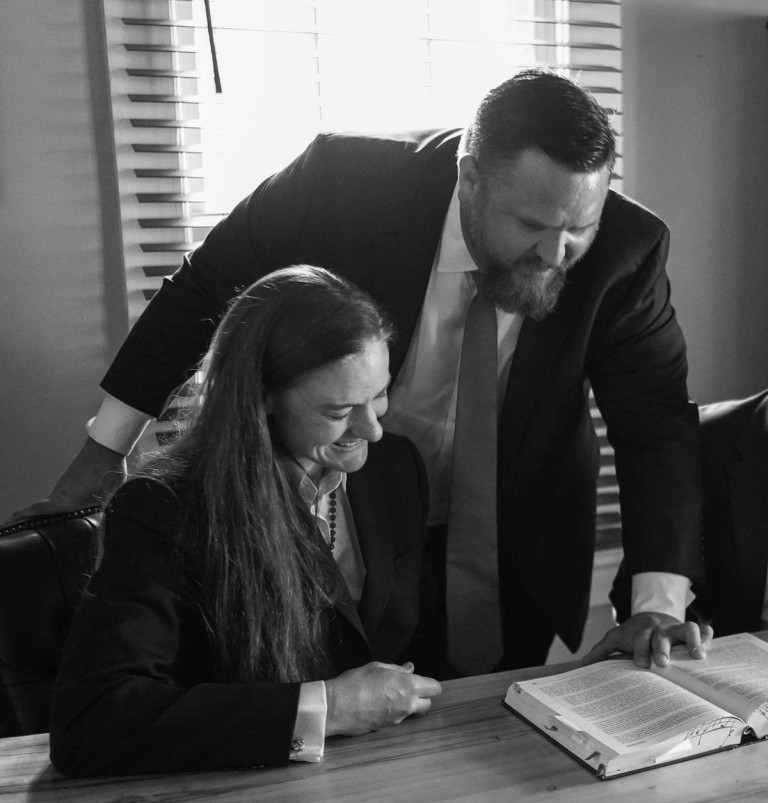Despite their most sincere wishes, grandparents sometimes encounter situations where they are unable to see their grandchildren whenever they would like. Due to various circumstances, including conflict, divorce, or the death of a parent, grandparents may find themselves embroiled in legal battles, fighting for the right to see their child’s offspring.
These lawsuits can be heart-wrenching for all involved, especially the grandchildren. Though it’s natural for grandparents to assume that they have a right to see their grandchildren, South Carolina parents are usually afforded the highest level of legal rights regarding their children.
Still, there are times where a grandparent can successfully argue for visitation rights. In this article, we’ll provide some background information that will help give you some perspective. For specific questions, please get in touch with our office to discuss your situation.
The Landmark Case that Has Recently Influenced Grandparent Visitation Rights
Matters concerning family law are determined at the state level, and this includes grandparent visitation rights. However, a 2000 U.S. Supreme Court case set some boundaries on what grandparents can demand.
In Troxel v. Granville, an unwed couple had two daughters. When they separated, the father moved in with his parents (the Troxels), and the daughters visited the home often. However, when the father committed suicide, the mother decided that visits with the grandparents would be limited to once per month and specific holidays.
Initially, the trial court sided with Troxels, stating that it was in the children’s best interest to spend time with their grandparents. However, Granville (the mom) argued that awarding the Troxels more visitation than she agreed to infringed on her parental rights. Accordingly, she claimed that going against her wishes would violate the 14th Amendment’s Due Process Clause in the U.S. Constitution.
In that case, the issue in question was whether the Constitution’s Due Process Clause permits a state to award child visitation to a third party (i.e., grandparents) over a fit parent’s objection when the decision is based solely on a determination of a child’s best interests.
The Supreme Court Justices were divided in their decision but ultimately concluded that the state cannot unilaterally override a fit parent’s decision. There are multiple factors that must be considered, including the fitness of the parent and the parent’s wishes.
When are Grandparents Entitled to Visitation?
In South Carolina, the law affords visitations rights to grandparents under a specific set of circumstances. Stereotypically, grandparents develop tight bonds with their grandchildren, and South Carolina recognizes the importance of these familial relationships.
On a case-by-case basis, the court may find that a grandparent is entitled to visitation if the parents are:
- Divorced,
- Separated and living apart, or
- Deceased
In addition to the status of the parents, one or more of the following conditions must also be met:
- The court finds that the parents are deemed “unfit.” This determination stems from an evaluation of the evidence showing that the parent cannot provide a suitable and safe environment for a child, putting the child at risk of harm.
- The parents are unreasonably depriving the grandparents of visitation. The term “unreasonable” can be subjective, but as a general rule, preventing visitation for more than 90 days may fit the description.
- Granting visitation would not unduly interfere with the parent’s wishes or the parent’s relationship with the child. Keep in mind that the biological parent or legal guardian’s wishes and rights come first.
- Other equally compelling reasons exist that lead the court to conclude that they can override a parent’s wishes. The best interests of the child will be heavily weighed along with other circumstances, such as the child already living with and being supported by the grandparent, or the grandparent having an already-established parental role.
Is Custody an Option for Grandparents?
Generally speaking, grandparents aren’t the first choice for assigning custody in a court case. The courts tend to view a living situation with the parent(s) as the primary caregiver as ideal. Even a stepparent may be granted preferential treatment after the other parent’s death if the stepparent had fulfilled the role of a parent and was deemed “fit.”
However, there are still circumstances where a grandparent can be awarded custody of a grandchild. The burden of proof is on the petitioner (i.e., the grandparent) to show that the biological parent is unwilling or unable to care for the child.
Specifically, the courts are looking for evidence that:
1. The child has been abandoned.
2. There has been persistent neglect.
3. The parent has failed to fulfill the responsibilities that come with parenthood.
4. The parent has given up or forfeited the child to a third party. The third party in question must not be the spouse.
Can Grandparents Get Visitation if the Child Has Been Adopted?
Specifically, the question is whether a grandparent whose child put a baby up for adoption has any visitation rights with that biological grandchild. This situation can be especially heartbreaking for a grandparent because they know their kin is out in the world, and the grandparent might not have had any input into their child’s choice.
Most of the time, the biological grandparent is not afforded any visitation rights. Exceptions, however, do exist. The Supreme Court of South Carolina ruled in Chavis v. Witt that the grandparents would be able to visit their granddaughter who had been adopted because their biological son had died and did not consent to the adoption.
Though the circumstances of this case are rare, it demonstrates that there are myriad intricacies in the law. It can be helpful to speak with an experienced family law attorney(hyperlink to family law page) to understand your options better.
Get Help from the Attorneys at Fender Law Firm
As a third-generation Beaufort Attorney, Fender Law Firm is highly sympathetic to grandparents’ rights, and we cherish family. We understand how painful it can be when you have a special bond with your grandchild, and you’re unable to see each other often, if at all. Contact Fender Law Firm at (843) 379-4888 to discuss your rights as a South Carolina grandparent.





